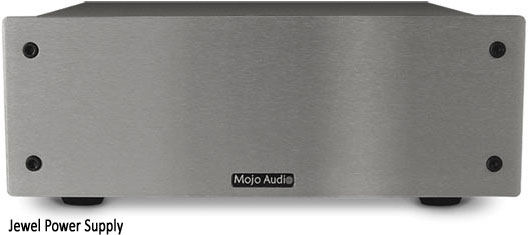LB: Mac has recently introduced a new operating system. Have these changes impacted the performance of your Media Server?
BZ: Most of the changes in the new OS X Mountain Lion operating system are automated sharing options that make it more user-friendly. Some claim Snow Leopard was the best sounding version of OS X but the initial reports we’ve heard are that Mountain Lion is more streamlined and sounds better than both Lion and Snow Leopard. In our experience, these differences are quite minor once the stock Mac Mini power supply has been upgraded.
Mojo Audio has recently posted a “How to Optimize OS X Mountain Lion for Audio and Video” guide on our Audiofiles blog. This is a collection of tips and tricks we’ve accumulated over the years. We constantly update this OS X optimization guide based on feedback from our readers and hope to soon have the most comprehensive “living” guide for OS X optimization.
http://mojoaudiofiles.wordpress.com
We will be posting additional blogs on how to remove and upgrade the stock power supply in a Mac Mini some time over the winter and we are also in the process of writing blogs on digital theory and the differences between 16-bit and higher resolution digital formats.
Following our optimization guide on a stock Mac Mini would result in a significant sonic improvement. Interestingly enough, the sonic improvement is somewhat subtle when doing the same OS X optimization on our media servers with upgraded power supplies. Certainly power supply has more than 10X the sonic benefit of software optimization. We’ve even found that upgrading to a middle price USB cable can have significantly more sonic benefit than software optimization as well. The great thing about software optimizations is they are free ; )
LB: Some manufacturers/modders opt to go “off the grid” by using batteries. What are your thoughts on this approach?
BZ: There is a common misconception that batteries have the purest DC power. First, batteries have a an audible noise signature that changes during different phases of the charge-discharge cycle. Second, different batteries use different chemical reactions, each of which has its own noise signature; this is why a particular type of battery, such as LIO4, sounds cleaner than another type, such as SLA.
Though better than the cheap wall wart switching power supplies that come with many AV products, batteries can’t compare to an ultralow-noise linear power supply in performance. If batteries were lower noise, they would be used by the military and the telecommunications industry. Of course batteries also wear out and need replacing, adding to the cost of ownership.
LB: Mac computers come with iTunes as part of the OS X operating system, and iTunes can be downloaded for free to use with Windows operating systems. Windows comes with Windows Media Player. What are the functions of these players and how do they differ?
BZ: iTunes and Media Player are among the most popular and user-friendly media interfaces available today. The big difference between the two is that iTunes has features related to programming and managing iOS devices like iPads, iPhones, and iPods, but Media Player does not. Both allow the user to easily get media from drives (importing), disks (ripping), and online (downloading); to organize the music (creating playlists); and to convert from one CODEC to another (formatting) during the importing process.
LB: How is ripping accomplished, and which software do you recommend?
BZ: Most library management software can be set up so that you can simply insert a CD in the optical drive and it will automatically “rip” or take the music files from the CD, reformat them into a predetermined CODEC, copy them to the hard drive of the computer, and then eject the CD when the process is complete. Your media libray software’s preferences settings control how CDs are treated when inserted and will allow you to preset a specific CODEC.
iTunes and Media Player work quite well for ripping and storing music files; as long as you use ALAC or WM9 to compress music files, the data remain unaltered. For playback, however, both iTunes and Media Player have ingenious automatic upsampling and downsampling algorithms as well as error correction that are optimized for lower-quality devices. When iTunes or Media Player are used with high-performance playback systems, these automatic algorithms change the original quantized data values, which greatly alters the time and tune, making the music sound mechanical, smoothed over, and unemotional.
There are all sorts of software available for library management, and they all have equal sonic performance. I prefer iTunes for ease of use, features, and compatibility with my iOS devices.
LB: There are many different high-performance “lossless” CODECs for audio. Which do you prefer and why?
BZ: Of the high-performance “lossless” audio CODECs, the most popular seem to be FLAC (open source), ALAC (Apple), and WMA9 (Microsoft). The reason I prefer Apple’s ALAC is because it is the only high-performance CODEC that adds Metadata and tags the individual tracks with artwork and info, making it the most user-friendly.
We’ve compared the performance of many lossless audio formats and found there is little sonic difference between them, as one would expect for “lossless” CODECs. There is significantly more sonic difference between different types of player software than between different CODECs of equal resolution.
Note that when compressing music data using a lossless CODEC, it is important to avoid changing the sampling rate or native resolution of the music being copied. Changing the mathematical structure of music files will change the time and tune and often destroys the emotional content of the original recording.
- ← Previous page
- (Page 4 of 6)
- Next page →



There is some misleading information. OS X is NOT based on Linux, it’s based on Unix. There is a difference, albeit not that much, but OS X is NOT based on Linux. Ben might want to change his response to the question.